Sign up for our weekly newsletter
That One Thing
Too much information can often be just as counterproductive as a lack of information. We’re hearing from our FP/RH colleagues that this challenge is especially ringing true today as experts release new knowledge related to COVID-19 on a daily basis. Information overload can feel overwhelming and even paralyzing.
That’s why we launched That One Thing, a bi-weekly update recommending the one tool, resource, or newsworthy item that FP/RH professionals should focus their attention on that week.
Pour lire la version francaise, cliquez ici.
To see the English version, click here.
The End of That One Thing
That One Thing Fields (English)
As we shared a few weeks ago, after three years, we’re ending our popular That One Thing email newsletter. In a new blog post, “When to Stop Publishing an Email Newsletter,” we share the history of why we started That One Thing in April 2020, and how we decided it was time for the newsletter to come to a close.
Read the blog now, and thank you again for being a loyal reader of our newsletter.
Happy knowledge sharing,
The Knowledge SUCCESS team



Strengthening Partnership with Faith Actors in Family Planning: A Strategic Planning Guide
That One Thing Fields (English)
Faith actors can play major roles in the promotion of health behaviors and the provision of healthcare information, services, and supplies. A new HIP Strategic Planning Guide can help you find entry points for engaging and collaborating with faith actors on family planning.
The goal of this guide is to walk program designers and decision-makers through a strategic approach for partnering with faith actors in family planning. Implementation of this guide can enable a range of stakeholders to work effectively, openly, and transparently with faith actors in the identification and development of family planning strategies that suit their contexts. The guide is available to download in Arabic, English, French, Portuguese, and Spanish.
We also wanted to let you know that this is the last regular issue of That One Thing. Stay tuned for a blog post explaining more about the decision to end the newsletter, and a look back at what it accomplished and what we’ve learned. Thanks for reading!
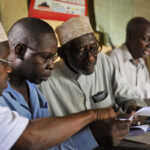
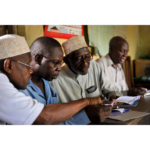
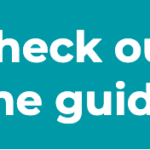
Webinar: Leveraging High Impact Practices in Family Planning, for India’s FP2030 Commitments
That One Thing Fields (English)
Happy World Contraception Day! This year, the theme is “The power of Options,” which shines a spotlight on the crucial role that contraceptive choices play in empowering individuals to take control of their reproductive health. We know there are many exciting webinars happening today, but why not join one tomorrow? Check out this webinar below.
This webinar, led by UNFPA India, in collaboration with WHO/IBP Network and the HIPs (High Impact Practices) Partnership is organizing an orientation webinar for stakeholders working on FP in India. Speakers will explore India’s vision document for FP2030, which includes India’s FP2030 commitments and is a guide for states to develop state specific roadmaps that consider HIP-interventions.


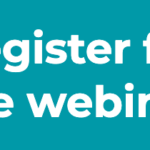
Article: Relationship between history of hormonal contraceptive use and anaemia status among women in sub-Saharan Africa
That One Thing Fields (English)
Anemia among women has been reported to be a significant contributor to hemorrhage, exacerbated risk of stillbirths, miscarriages, and maternal mortalities. A recently published study sought to understand factors associated with anemia risk and hormonal contraceptive use in Sub-Saharan Africa.
The authors in this large population-based study analyzed DHS survey data from 16 countries. The results provide strong evidence for the importance of hormonal contraceptive use to mitigate the risk of anemia and associated maternal health outcomes. Read the key study results now, and consider how these can be used to inform your FP/RH programs.
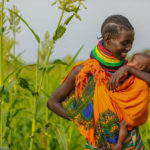
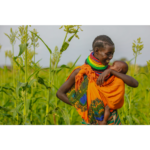

Webinar Series: Prioritizing Health in Climate Change Action in Africa
That One Thing Fields (English)
A webinar series is underway that we wanted to make sure you knew about, especially if you have an interest in Population, Health, and Environment (or PHE). The webinar series aims to unite global stakeholders for a dialogue on the intersectionality between health and climate change, focusing on Africa.
Organized by stakeholders from the government, research and policy, as well as civil society actors, this series will galvanize interest and spur policy and program action around key climate change events, including the Climate Change and Development in Africa (CCDA) Conference, Africa Climate Summit, Africa Climate Week (ACW), and the UN Climate Change Conference (COP 28). The first webinar occurred on August 22nd, and the next two will take place in September and October. Learn more and register for the next two webinars now! Unfortunately, these webinars are currently only available in English.
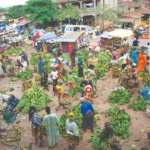
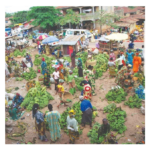

Webinar Series: Harnessing Compassion to Improve FP/RH Outcomes
That One Thing Fields (English)
Terms like “provider-client trust,” “empathy building,” and “local ownership” appear in many FP/RH activity descriptions and reports, but what do these terms really mean? How can we achieve them?
Breakthrough ACTION is hosting a three-part webinar series to aim to answer these questions
Breakthrough ACTION will share approaches used to build rapport, trust, and common ground between health care providers, families, and community champions for more holistic services and improved results. The webinar series will begin on Tuesday, August 22, and will have simultaneous interpretation into French. Register for the first one, and get the other two on your calendar now!
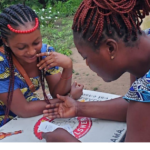
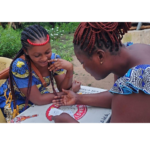

HIP Brief Presentations
That One Thing Fields (English)
Just released! 13 new brief presentations on High Impact Practices in Family Planning (HIPs) have been created for Service Delivery, Enabling Environment, and Social and Behavior Change. Learn more below.
HIPs describe family planning practices that have demonstrated impact, are applicable across settings, and are scalable, sustainable, and cost-effective. Now, every HIP brief has an accompanying presentation to make it easier to present to various audiences, supporting HIP scale-up and implementation. The presentation slides are downloadable, include speaking notes for the presenter, and are fully editable to adapt to your needs.
Check out the 13 newly released HIP Brief Presentations now!
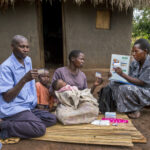
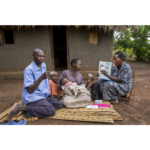
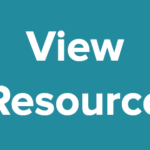
Webinar: Advancing progress towards scalable approaches to improve RMNCH-FP service use among first-time mothers: Results and learning from Bangladesh and Tanzania
That One Thing Fields (English)
An upcoming webinar will provide insight into scalable approaches for improving uptake of postpartum family planning (PPFP) and postnatal care (PNC) among first-time mothers. Learn more below!
First-time mothers aged 15-24 face higher risk for poor maternal outcomes and are less likely to use health services, including PPFP and PNC. This webinar, available in both English and French, will highlight approaches to improving reproductive, maternal, newborn, child health, and family planning (RMNCH-FP) service use in Bangladesh and Tanzania, with a focus on institutionalization and sustainability. Sign up to join the webinar on July 31 at 9:00 AM EDT.
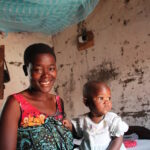
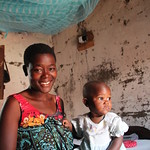

EECO Product Registration Toolkit – Now available in French
That One Thing Fields (English)
Ready to register a contraceptive or health product but aren’t sure where to start? The Expanding Effective Contraceptive Options (EECO) project has released an expansion of their Product Registration Toolkit to include additional resources and translated the entire Toolkit into French!
The EECO Product Registration Toolkit is a collection of adaptable, downloadable resources that can be used to support program managers, manufacturers, and regulatory experts through the product registration process in low- and middle-income countries. We have promoted this useful toolkit before, but the new update is that it’s now available in French–check it out now!



New UNFPA podcast series: ‘Hold on a minute’
That One Thing Fields (English)
UNFPA Asia-Pacific has launched a new storytelling podcast series covering the topics of sexual and reproductive health and rights, population and development issues, and gender equality.
UNFPA Asia and the Pacific Regional office is releasing between May-December 2023 a new podcast titled ‘Hold on a minute.’ The 12-episode series sheds light on the challenges facing women and girls across the region when it comes to the full realization of their sexual and reproductive health and rights and gender equality. Subject-matter experts join to present the evidence, analyze the causes of the problems, and offer solutions and recommendations. At this time, the podcast is only available in English.
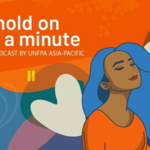


Webinar: AmplifyFP in Togo — Access to quality reproductive health information and services
That One Thing Fields (English)
An upcoming webinar will provide insight into the impact of youth champions in raising awareness about FP/RH among peers. Check out the information below!
AmplifyPF Togo project identified and trained 15 pairs of youth champions in five intervention zones. They collaborated with the presidents of the prefectural chambers of trade to establish a strategy for mobilizing and sensitizing youth and adolescents. This webinar, available in both English and French, will present results of the intervention. Sign up to join the webinar on May 25 at 10:30 AM EDT.
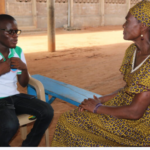
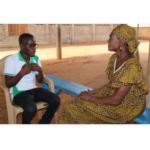

Funding Opportunity: Accountability Framework Piloting
That One Thing Fields (English)
In 2022, FP2030 launched its Advocacy and Accountability Framework (AAF), which outlines the role of advocacy and accountability in the FP2030 partnership. Now, FP2030 is offering funding to civil society organizations in select African countries to pilot the country commitment tracking approach.
Learn more about this exciting funding opportunity and see if your civil society or nonprofit organization, or one you work with, could win a grant to monitor, validate, report progress, and act on their country’s FP2030 commitment. At this time, applications are open for select Anglophone countries only. Grants will be awarded at a maximum of $80,000 – an opportunity that cannot be missed!
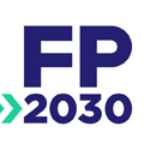


La fin du That One Thing
That One Thing Fields (French)
Comme nous l’avons annoncé il y a quelques semaines, après trois ans, nous mettons un terme à la très populaire lettre d’information électronique That One Thing. Dans un nouvel article de blog intitulé “Quand arreter de publier une newsletter par électronique,” nous expliquons pourquoi nous avons lancé That One Thing en avril 2020 et comment nous avons décidé qu’il était temps de mettre un terme à cette lettre d’information.
Lisez le blog maintenant, et merci encore d’être un fidèle lecteur de notre lettre d’information.
Bon partage des connaissances,
L’équipe de Knowledge SUCCESS



Renforcer le partenariat avec les acteurs religieux dans le domaine de la planification familiale : Guide de planification stratégique
That One Thing Fields (French)
Les acteurs religieux peuvent jouer un rôle majeur dans la promotion des comportements de santé et la fourniture d’informations, de services et de produits de santé. Un nouveau guide de planification stratégique PHI peut vous aider à trouver des points d’entrée pour engager et collaborer avec les acteurs religieux sur la planification familiale.
L’objectif de ce guide est d’accompagner les concepteurs de programmes et les décideurs dans une approche stratégique de partenariat avec les acteurs religieux dans le domaine de la PF. La mise en œuvre de ce guide peut permettre à une kyrielle de parties prenantes de travailler de manière efficace, ouverte et transparente avec les acteurs religieux dans l’identification et le développement de stratégies de PF adaptées à leurs contextes. Le guide peut être téléchargé en anglais, arabe, espagnol, français et portugais.
Nous tenions également à vous informer qu’il s’agit du dernier bulletin régulier de That One Thing. Restez à l’écoute pour un blog expliquant plus en détail la décision de mettre fin à ce bulletin, et une rétrospective de ce qu’il a accompli et de ce que nous avons appris. Merci de votre lecture !


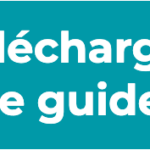
Webinaire : Tirer profit des pratiques à haut impact en matière de planification familiale, pour les engagements de FP2030 de l’Inde
That One Thing Fields (French)
Bonne journée mondiale de la contraception ! Cette année, le thème est “Le pouvoir des options”, qui met en lumière le rôle crucial que jouent les choix contraceptifs pour permettre aux individus de prendre en main leur santé reproductive. Nous savons que de nombreux webinaires passionnants sont organisés aujourd’hui, mais pourquoi ne pas participer à l’un d’entre eux demain ? Découvrez ce webinaire ci-dessous.
Ce webinaire, dirigé par l’UNFPA Inde, en collaboration avec le réseau OMS/IBP et le partenariat PHI (Pratiques à Haut Impact) organise un webinaire d’orientation pour les parties prenantes travaillant sur la PF en Inde. Les intervenants exploreront le document de vision de l’Inde pour FP2030, qui comprend les engagements de l’Inde pour FP2030 et constitue un guide pour les États afin de développer des feuilles de route spécifiques à l’État qui prennent en compte les interventions PHI.


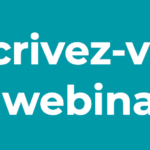
Article : Relation entre les antécédents d’utilisation de contraceptifs hormonaux et le statut de l’anémie chez les femmes d’Afrique subsaharienne
That One Thing Fields (French)
L’anémie chez les femmes est considérée comme un facteur important d’hémorragie, d’aggravation du risque de mortinatalité, de fausses couches et de mortalité maternelle. Une étude récemment publiée a cherché à comprendre les facteurs associés au risque d’anémie et à l’utilisation de contraceptifs hormonaux en Afrique subsaharienne.
Les auteurs de cette vaste étude basée sur la population ont analysé les données d’enquêtes démographiques et sanitaires de 16 pays. Les résultats fournissent des preuves solides de l’importance de l’utilisation de contraceptifs hormonaux pour réduire le risque d’anémie et les résultats associés en matière de santé maternelle. Lisez maintenant les principaux résultats de l’étude et réfléchissez à la manière dont ils peuvent être utilisés pour informer vos programmes de PF/SR. Malheureusement, l’article n’est disponible qu’en anglais.



Série de webinaires : Priorité à la santé dans l’action contre le changement climatique en Afrique
That One Thing Fields (French)
Une série de webinaires est en cours et nous tenions à ce que vous en soyez informés, en particulier si vous vous intéressez à la santé-population-environnement (ou SPE). Cette série de webinaires vise à réunir les acteurs mondiaux pour un dialogue sur l’intersection entre la santé et le changement climatique, en mettant l’accent sur l’Afrique.
Organisée par des parties prenantes du gouvernement, de la recherche et de la politique, ainsi que des acteurs de la société civile, cette série galvanisera l’intérêt et stimulera l’action politique et programmatique autour des événements clés du changement climatique, y compris la Conférence sur le changement climatique et le développement en Afrique (CCDA), le Sommet africain sur le climat, la Semaine africaine sur le climat (AAC) et la Conférence des Nations unies sur le changement climatique (COP 28). Le premier webinaire a eu lieu le 22 août, et les deux suivants auront lieu en septembre et octobre. Pour en savoir plus et vous inscrire aux deux prochains webinaires, cliquez sur le bouton ci-dessous ! Malheureusement, ces webinaires ne sont actuellement disponibles qu’en anglais.



Série de webinaires : Tirer parti de la compassion pour améliorer les résultats en matière de PF/SR
That One Thing Fields (French)
Des termes tels que “confiance entre le prestataire et le client”, “développement de l’empathie” et “appropriation locale” apparaissent dans de nombreuses descriptions et rapports d’activités de PF/SR, mais que signifient réellement ces termes ? Comment pouvons-nous les atteindre ?
Breakthrough ACTION organise une série de webinaires en trois parties afin de répondre à ces questions.
Breakthrough ACTION partagera les approches utilisées pour établir un rapport, une confiance et un terrain d’entente entre les prestataires de soins de santé, les familles et les champions de la communauté pour des services plus holistiques et de meilleurs résultats. La série de webinaires débutera le mardi 22 août et sera interprétée simultanément en français. Inscrivez-vous au premier webinaire et enregistrez les deux autres dans votre agenda dès maintenant !


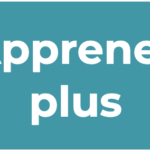
Présentations des résumés PHI
That One Thing Fields (French)
Vient de sortir ! 13 nouveaux résumés sur les pratiques à haut impact en matière de planification familiale (High Impact Practices / HIP ou PHI) ont été créés pour la prestation de services, l’environnement favorable et le changement social et comportemental. En savoir plus ci-dessous.
Les PHI décrivent des pratiques de planification familiale qui ont démontré leur impact, sont applicables dans tous les contextes et sont évolutives, durables et rentables. Désormais, chaque résumé HIP est accompagné d’une présentation afin de faciliter les présentations à divers publics et de soutenir l’élargissement et la mise en œuvre des HIP. Les diapositives de la présentation sont téléchargeables, comprennent des notes d’allocution pour le présentateur et sont entièrement modifiables pour s’adapter à vos besoins. Pour l’instant, seules les présentations en anglais sont disponibles.


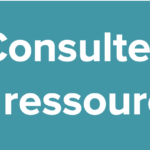
Progresser vers des approches évolutives pour améliorer l’utilisation des services SRMNI-PF par les mères qui accouchent pour la première fois : Résultats et enseignements du Bangladesh et de la Tanzanie
That One Thing Fields (French)
Un prochain webinaire donnera un aperçu des approches évolutives permettant d’améliorer l’utilisation de la planification familiale post-partum (PFPP) et des soins postnataux chez les mères primipares. Plus d’informations ci-dessous !
Les mères primipares âgées de 15 à 24 ans courent un risque plus élevé de souffrir de problèmes maternels et sont moins susceptibles d’utiliser les services de santé, y compris la PFPP et le soin postnatal. Ce webinaire, disponible en anglais et en français, mettra en lumière les approches visant à améliorer l’utilisation des services de santé reproductive, maternelle, néonatale, infantile et de planification familiale (SRMNI-PF) au Bangladesh et en Tanzanie, en mettant l’accent sur l’institutionnalisation et la durabilité. Inscrivez-vous pour participer au webinaire le 31 juillet à 9h00 HAE.



Boîte à outils d’enregistrement de produits d’EECO – Maintenant disponible en francais !
That One Thing Fields (French)
Vous êtes prêt à enregistrer un contraceptif ou un produit de santé, mais vous ne savez pas par où commencer? Le projet Expanding Effective Contraceptive Options (EECO) a élargi sa boîte à outils sur l’enregistrement des produits pour y inclure des ressources supplémentaires et a traduit l’ensemble de la boîte à outils en français !
La boîte à outils d’enregistrement de produits est une collection de ressources adaptables et téléchargeables que vous pouvez utiliser pour soutenir les gestionnaires de programmes, les fabricants et les experts en réglementation tout au long du processus d’enregistrement des produits dans les pays à faibles et moyens revenus. Nous avons déjà fait la promotion de cette boîte à outils utile, mais la nouvelle mise à jour est qu’elle est maintenant disponible en français !


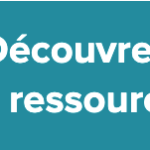
Nouvelle série de podcast de l’UNFPA : « Hold on a minute » (Attendez une minute)
That One Thing Fields (French)
L’UNFPA Asie-Pacifique a lancé une nouvelle série de podcast sur la santé et les droits sexuels et reproductifs, les questions de population et de développement, et l’égalité des sexes.
Le bureau régional de l’UNFPA pour l’Asie et le Pacifique publie entre mai et décembre 2023 un nouveau podcast intitulé « Hold on a minute ». Cette série de 12 épisodes met en lumière les défis auxquels sont confrontées les femmes et les filles de la région en ce qui concerne la pleine réalisation de leurs droits et de leur santé sexuelle et reproductive, ainsi que l’égalité des sexes. Des experts en la matière se réunissent pour présenter les faits, analyser les causes des problèmes et proposer des solutions et des recommandations. Pour l’instant, le podcast n’est disponible qu’en anglais.


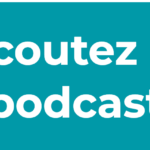
Webinaire AmplifyPF au Togo: Accès à des informations et services de santé reproductive de qualité
That One Thing Fields (French)
Un prochain webinaire donnera un aperçu de l’impact des jeunes champions dans la sensibilisation à la PF/SR parmi leurs pairs. Découvrez les informations ci-dessous !
Le projet AmplifyPF Togo a identifié et formé 15 paires de jeunes champions dans cinq zones d’intervention. Ils ont collaboré avec les présidents des chambres de commerce préfectorales pour établir une stratégie de mobilisation et de sensibilisation des jeunes et des adolescents. Ce webinaire, disponible en anglais et en français, présentera les résultats de l’intervention. Inscrivez-vous pour participer au webinaire le 25 mai à 10h30 EDT.



Opportunité de financement : Pilotage du cadre de redevabilité
That One Thing Fields (French)
En 2022, le FP2030 a lancé son cadre de plaidoyer et de redevabilité, qui décrit le rôle du plaidoyer et de la redevabilité dans le partenariat du FP2030. Aujourd’hui, FP2030 offre un financement aux organisations de la société civile dans certains pays africains pour piloter l’approche de suivi des engagements nationaux.
Découvrez cette opportunité de financement passionnante et voyez si votre organisation de la société civile ou à but non lucratif, ou une organisation avec laquelle vous travaillez, pourrait gagner une subvention pour suivre, valider, rendre compte des progrès et agir sur l’engagement de leur pays en faveur de FP2030. Pour l’instant, les candidatures ne sont ouvertes qu’aux certains pays anglophones. Les subventions seront accordées pour un montant maximum de 80 000 dollars – une opportunité à ne pas manquer !















